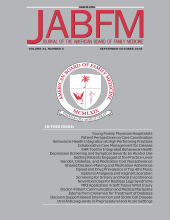To the Editor: We appreciate Dr. Fiscella and Dr. Carroll's amendment to our article and enthusiastically agree with the assertion that health equity is an important lens through which to gauge the effectiveness of payment models. While we assessed how these models affected health outcomes broadly, we agree that an important addition would be to specifically examine their impact on health equity.
As Dr. Fiscella and Dr. Carroll note, risk-adjusted (based on social determinants of health in addition to medical determinants) global payments are one potential path toward equity, by ensuring that adequate resources are dedicated to patients with more complex needs and that there is flexibility in funds to meet social needs in addition to medical needs. In our characterization of payment models we have included whether the model includes risk adjustment.
Another consideration relevant to payment models is to include measures of equity in performance metrics. We have raised concerns that models like the Merit-Based Incentive Payment System have the potential to widen existing disparities.1 There is important work underway to develop measures that adequately assess primary care, including impact on health equity, begun at Starfield Summit III and being continued at the Larry A. Green Center for the Advancement of Primary Health Care for the Public Good.
While primary care has been shown to attenuate health disparities, improved payment for primary care is necessary but not sufficient for achieving health equity. Achieving population health equity goals also requires ensuring access to health care for all, looking further upstream to payment for social services, and systematically addressing structural racism and discrimination.
Notes
The above letter was referred to the author of the article in question, who offers the following reply.
References
- 1.↵







